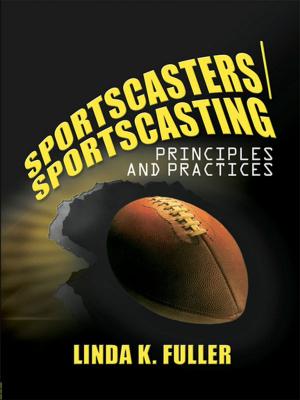Core Concepts in Contemporary Psychoanalysis
Clinical, Research Evidence and Conceptual Critiques
Nonfiction, Health & Well Being, Psychology, Psychoanalysis, Mental Health| Author: | Morris N. Eagle | ISBN: | 9781351392648 |
| Publisher: | Taylor and Francis | Publication: | December 4, 2017 |
| Imprint: | Routledge | Language: | English |
| Author: | Morris N. Eagle |
| ISBN: | 9781351392648 |
| Publisher: | Taylor and Francis |
| Publication: | December 4, 2017 |
| Imprint: | Routledge |
| Language: | English |
In Core Concepts in Contemporary Psychoanalysis, alongside its companionpiece Core Concepts in Classical Psychoanalysis, Morris N. Eagle asks: of the core concepts and formulations of psychoanalytic theory, which ones should be retained, which should be modified and in what ways, and which should be discarded?
The key concepts and issues explored in this book include:
- Are transference interpretations necessary for positive therapeutic outcomes?
- Are the analyst’s countertransference reactions a reliable guide to the patient’s unconscious mental states?
- Is projective identification a coherent concept?
- Psychoanalytic styles of thinking and writing.
Unlike other previous discussions of such concepts, this book systematically evaluates them in the light of conceptual critique as well as recent research-based evidence and empirical data.
Written with Eagle’s piercing clarity of voice, Core Concepts in Contemporary Psychoanalysis challenges previously unquestioned psychoanalytic assumptions and will appeal to psychoanalysts, psychoanalytic psychotherapists, and anyone interested in integrating core psychoanalytic concepts, research, and theory with other disciplines including psychiatry, psychology, and social work.
In Core Concepts in Contemporary Psychoanalysis, alongside its companionpiece Core Concepts in Classical Psychoanalysis, Morris N. Eagle asks: of the core concepts and formulations of psychoanalytic theory, which ones should be retained, which should be modified and in what ways, and which should be discarded?
The key concepts and issues explored in this book include:
- Are transference interpretations necessary for positive therapeutic outcomes?
- Are the analyst’s countertransference reactions a reliable guide to the patient’s unconscious mental states?
- Is projective identification a coherent concept?
- Psychoanalytic styles of thinking and writing.
Unlike other previous discussions of such concepts, this book systematically evaluates them in the light of conceptual critique as well as recent research-based evidence and empirical data.
Written with Eagle’s piercing clarity of voice, Core Concepts in Contemporary Psychoanalysis challenges previously unquestioned psychoanalytic assumptions and will appeal to psychoanalysts, psychoanalytic psychotherapists, and anyone interested in integrating core psychoanalytic concepts, research, and theory with other disciplines including psychiatry, psychology, and social work.















